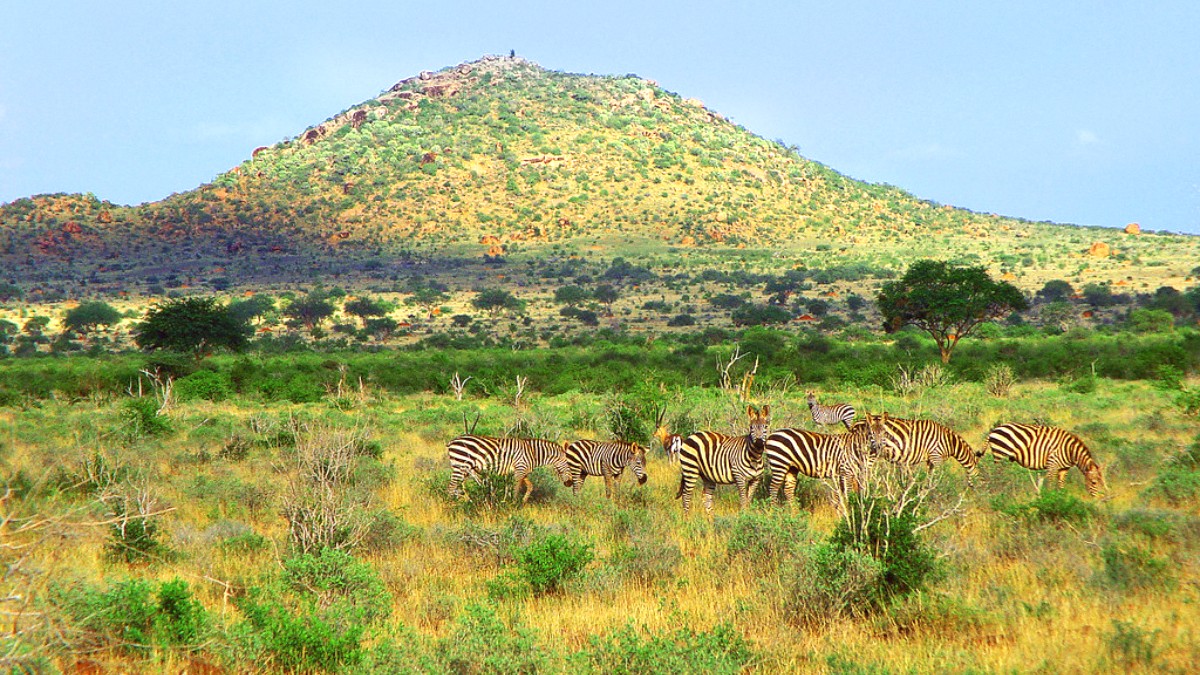
Kenya
Staples form the core of most meals: maize, millet, sorghum, and root vegetables.
Maasai people, pastoralists, rely on milk, blood, and meat from their livestock.
Beef, goat, and chicken are common, prepared in stews or grilled. Fish, especially tilapia and Nile perch, near lakes and the coast.
Kenyan cuisine is less spicy than Indian dishes but uses ginger, garlic, chili, and turmeric for flavor.
Coastal Swahili cuisine features coconut milk and seafood. Central Highlands focus on ugali. Western regions focus on freshwater fish.
This national staple pairs stiff maize meal porridge with collard greens cooked with onions and tomatoes.
You find it everywhere, from local eateries to safari camps.
Roasted goat meat is a signature Kenyan dish. Sometimes beef or chicken is used, seasoned simply with salt.
Often served with ugali and kachumbari at roadside eateries and specialized restaurants.
This grilled Kenyan sausage, a street food delicacy, uses ground meat, blood, and spices, stuffed into intestines.
You find it at local butcheries or markets.
Sweet, milky Chai is a national obsession. Tusker Lager and Safari Lager are Kenya's popular local beers. Muratina, a traditional potent alcoholic beverage made from fermented fruit, is typically found in rural areas.
Mandazi (Kenyan doughnut), savory Samosas, and Mbaazi za Nazi (pigeon peas cooked in coconut milk, a coastal specialty) are iconic.
Mainly found in Nairobi, in upscale hotels like the Fairmont The Norfolk or Hemingsways Nairobi.
Nairobi has countless options offering diverse international cuisines. Within the Mara, standard safari lodge dining falls into this category.
Common in towns like Narok or Nairobi but generally not available within the Maasai Mara National Reserve or conservancies.
Most safari lodges mix international (Western, Asian) and local dishes. Nairobi has a wide array of international restaurants.
Nairobi has Italian, Chinese, and Indian cuisine.
In Nairobi, City Market or Ngara Market offer fresh produce. The Maasai Mara does not have public markets.
The focus here remains on integrated safari experiences.
Most lodges cater; inform in advance.
Halal in cities; kosher rare, special arrangements.
Inform in advance; maize is gluten-free.
Direct communication; Swahili dietary card helpful.
Meals served in a scenic outdoor location within the bush, often after a morning game drive or for dinner under the stars.
This offers an immersive experience.
Evening drinks served at a picturesque spot in the bush, watching the sunset. This often includes snacks.
This offers a memorable end to a day of game drives.
Most safari lodges strive to offer high-quality meals, sourcing fresh local ingredients where possible.
Dining often takes place in dedicated lodge restaurants, but many camps also offer outdoor or private dining spots.
Meals served in a scenic outdoor location within the bush, often after a morning game drive.
Evening drinks served at a picturesque spot in the bush, watching the sunset.
Dinner served in a traditional Maasai enclosure (boma), often with cultural performances.
Some luxury safari lodges offer limited spa services, like massages or basic beauty treatments.
Check individual lodge amenities during booking.
Not a main focus, but some high-end camps may offer private yoga sessions upon request or have dedicated areas.
Capitalizes on the peaceful bush environment.
Always drink bottled or filtered water in Kenya. Avoid tap water unless advised by your camp.
Tipping for good service is customary, especially for guides and camp staff. Your safari operator may advise typical amounts.
Meals in safari camps are often communal, offering a chance to share stories with other guests.
Safari lodges are generally accustomed to catering to special dietary needs, but advance notice makes arrangements smoother.